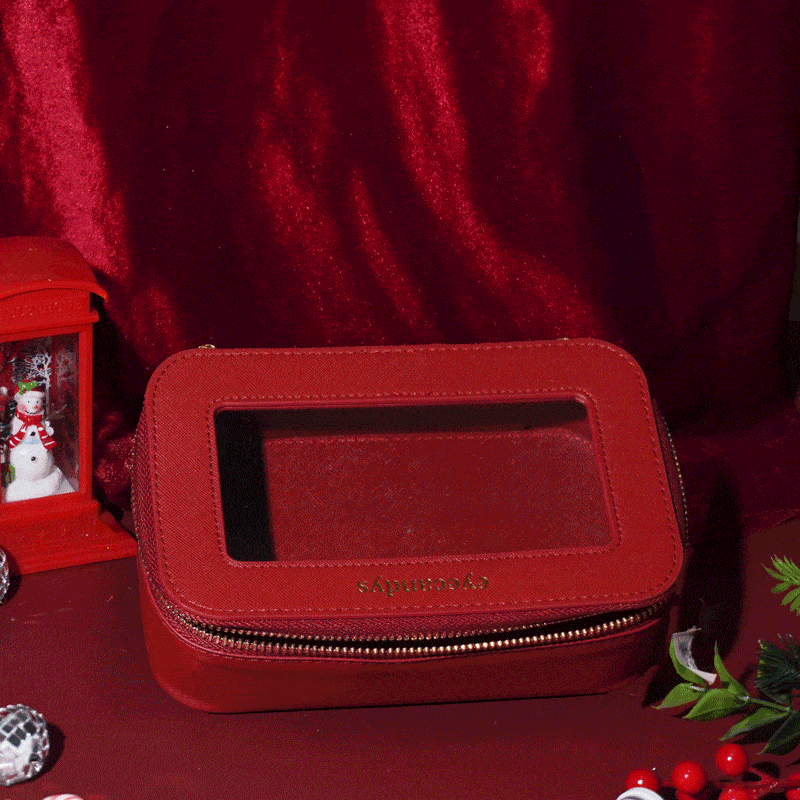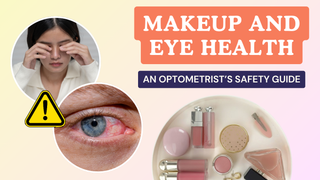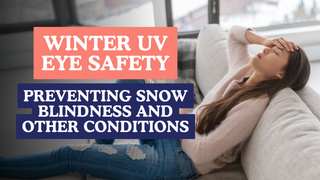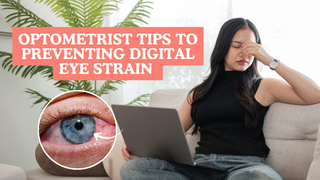As the winter season approaches, it's time to gear up for chilly temperatures, cozy nights by the fire, and of course, navigating the unique challenges of wearing contact lenses during the winter months. Whether you're hitting the slopes or simply braving the cold outdoors, we've got you covered with essential tips to keep your eyes comfortable and your vision crystal clear all season long.
Understanding Winter Challenges
Winter brings its own set of challenges for contact lens wearers. The combination of cold outdoor air and dry indoor heating can lead to uncomfortable dryness and irritation. Additionally, winter activities like skiing or snowboarding can expose your eyes to harsh winds and cold temperatures, exacerbating these issues. But fear not, we're here to help you conquer winter with confidence!
Winter Woes - Dry Eyes and Colored Contacts
Cooler weather is on the horizon. And with it, dry eyes… and skin… and scalp… and hair… The list goes on! Winter weather and dehydration go hand in hand. While we can’t solve all of these problems for you - as much as we’d love to - we can give you some advice to help alleviate your dry eye symptoms.
Like us, you’ve probably fallen in love with at least one pair of colored contact lenses and you love transforming your look each morning. Whether or not you require vision correction, colored contacts may be part of your daily routine.
In general, the higher the water content of your colored contacts, the more comfortable they will feel. The key here is hydration. So, it would follow that as they become dryer, they would also feel less comfortable.
How to Combat Dry Eyes with Colored Contacts
So, how do we combat dry eyes when wearing colored contact lenses in order to experience less discomfort and irritation? We have a few ideas:
-
Don’t wear them longer than recommended: Each pair of colored contacts comes with a recommendation for how long they should be worn. In the dry winter weather, it is even more important to adhere to these guidelines. For example, if your contact lens box suggests wearing them for less than 8 hours, plan accordingly.
-
Avoid wearing them when not necessary: For example, on a five-hour flight, do you need to wear your colored contact lenses? Could you instead wear a pair of glasses for vision correction? The cabin air is sure to be dryer than many other environments.
-
Consider your workspace: Your office may become particularly dry in the winter thanks to the very convenient and necessary central heating units. And this can wreak havoc on your colored contact lenses.
-
Use a mini humidifier or spritzer: Strategically place your humidifier where you will receive the most benefit. This can also help combat skin dehydration, which we all know is one of the most frustrating side effects of cold winter weather!
-
Pack eye drops: Make sure to keep a small bottle of eye drops with you to help lubricate your eyes as needed. This can be soothing whether you’re wearing your colored contacts or not, as dry eyes can become uncomfortable quickly when you’re factoring in strong, cold winds outdoors and dehydrating central heating indoors.
-
Cut down your screen time: Staring at your computer screen for long periods of time increases dryness and discomfort, with or without contact lenses! But, those beautiful color contact lenses can certainly increase your discomfort from dry eye. Plan breaks from your screen every 20 minutes to retain moisture in your eyes.
-
Trade your contacts for blue light blocking glasses: Blue light blocking glasses help to reduce eye strain when using electronic devices such as tablets, laptops, and cell phones. By blocking blue light, they also improve sleep quality and can prevent chronic headaches.
Choosing the Right Contact Lenses
When it comes to winter wear, not all contact lenses are created equal. Opt for silicone hydrogel lenses, which retain moisture better than traditional lenses and are ideal for combating dryness in cold weather. If you're planning on hitting the slopes or engaging in outdoor winter activities, consider using daily disposable lenses to minimize the risk of contamination from snow or moisture.
Winter Eye Care Routine
Make sure to stick to a consistent eye care routine throughout the winter season. Clean and disinfect your contact lenses daily, and don't forget to replace your contact lens case regularly to prevent bacterial buildup. These simple steps can help keep your eyes healthy and comfortable, even in the harshest winter conditions.
Outdoor Protection
Protect your eyes during outdoor activities by wearing sunglasses with UV protection to shield against harmful UV rays. Additionally, consider using goggles or wraparound glasses to protect your eyes from wind and cold air, especially if you'll be participating in winter sports. And don't forget to wear protective gear like helmets or face masks to prevent injury to the eyes.
Avoiding Irritants
Be mindful of potential irritants that can exacerbate dryness and discomfort while wearing contact lenses in winter. Avoid using heat sources, such as radiators or hairdryers, near your face, as they can dry out your eyes. And resist the urge to rub your eyes with cold hands, as this can cause irritation and discomfort. Trust us, it's worth it to keep those hands warm and your eyes happy!
Seeking Professional Advice
If you experience persistent discomfort or irritation while wearing contact lenses in winter, don't hesitate to seek professional advice. Consult with an eye care professional who can provide personalized recommendations and ensure your eyes stay healthy and comfortable all season long.
With these essential tips in your arsenal, you're ready to tackle winter like a pro while rocking your favorite colored contacts. Remember to prioritize hydration, protect your eyes from the elements, and stick to a consistent eye care routine to keep your eyes comfortable and your vision clear throughout the winter season.











